Editor’s note: This story was sponsored by Common Sense Communications, a Ukrainian non-profit organization specializing in pro-democracy strategic communications. One of their ongoing projects is “Voices of Civilian Hostages,” which aims to attract the world’s attention to the issue of Russia’s illegal abduction of Ukrainian civilians.
Yaroslav Platonov was at his workplace, a hotel near Kyiv, when Russian soldiers arrived on the afternoon of March 20, 2022. They kidnapped the 24-year-old and two other hotel workers, blindfolding and handcuffing them before driving them away in a tank. He and the other employees had been collecting humanitarian aid for locals during the first weeks of the full-scale invasion.
Valentyna Platonova, Yaroslav’s mother, has learned through other captives who had been held with Platonov that her son was initially held in a colony in Russia’s Bryansk Oblast. He was later transferred to a location further from the Ukrainian border, where it is thought he remains to this day.
Platonov is one of the thousands of civilian Ukrainians who have been illegally abducted by Russia since 2014, when it initially invaded Ukraine. According to some estimates, there could be over 7,000 Ukrainian civilians currently held in Russian-controlled prisons.
These people are held in dire conditions, often abused and tortured, without any means of communication. They are also trapped in a legal limbo, as international law prohibits the capture and exchange of civilians for prisoners of war.
Just under 500 civilian Ukrainians are known to have been released from these prisons, some under the condition that they do not flee from Russian-occupied areas to Ukrainian-controlled territories. The Ukrainian government and civil society alike are working hard to find ways to bring the rest of these Ukrainians back home, recently celebrating a small victory when Russia returned 10 civilians in a June 28 prisoner swap mediated by the Vatican.
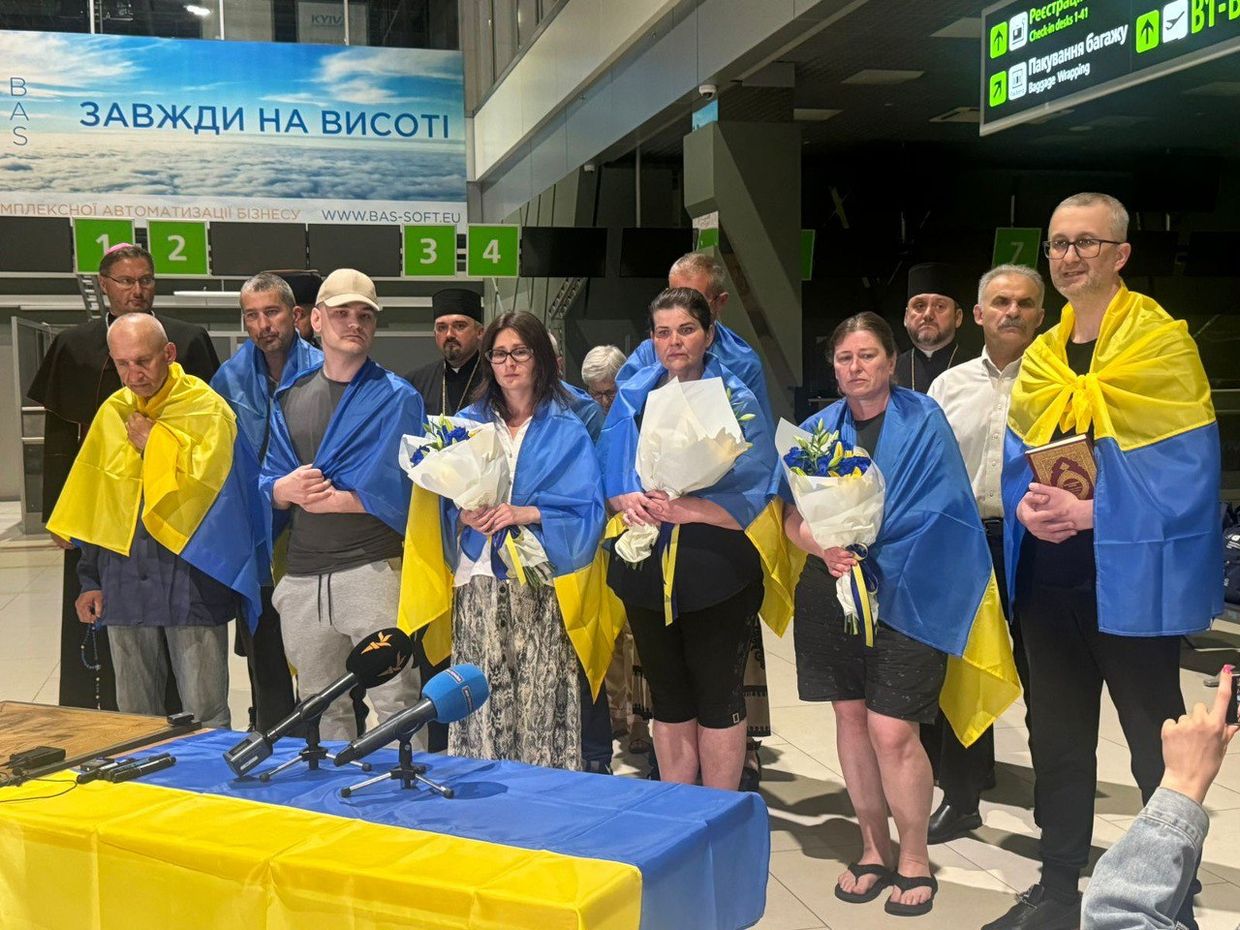
Russia rarely releases this many civilians at the same time. The group included Crimean Tatar activist Nariman Dzhelial, priests from the Ukrainian Greek Catholic Church, and people who had been captured in Belarus, Moscow’s main ally.
While this offers some hope that more civilian captives may be freed in similar releases mediated by third parties, civil activists emphasize that it is vital that the world continues to put pressure on Russia to follow international law.
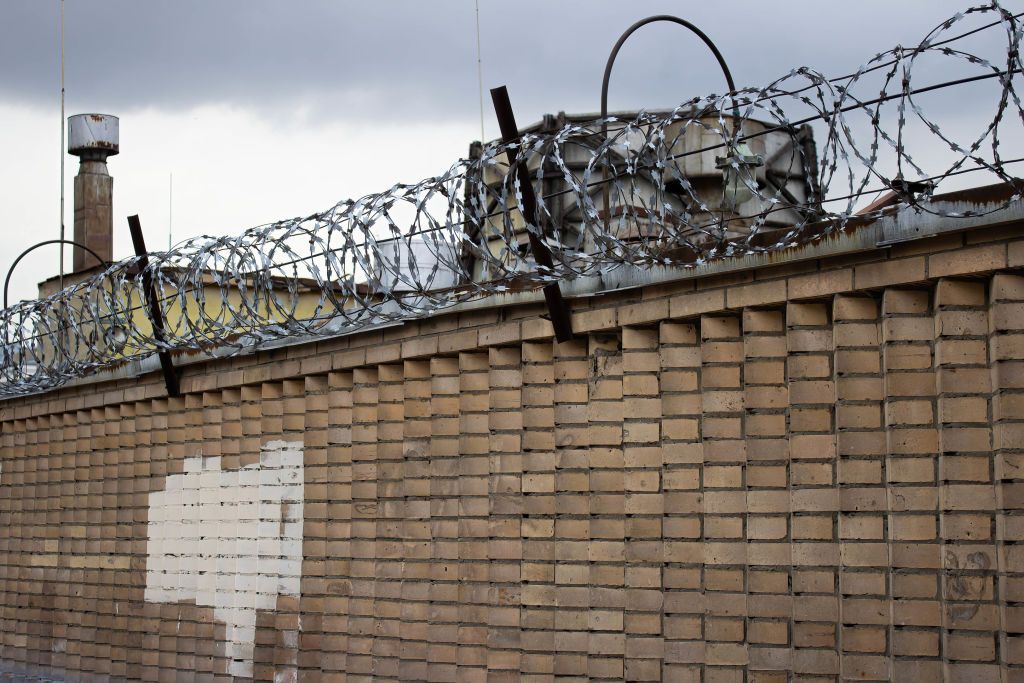
Abducted
When Moscow launched its full-scale invasion of Ukraine on Feb. 24, 2022, civilians in the occupied territories began disappearing en masse. It was only later revealed that many of them had been abducted by Russia in what appeared to be a sinister attempt to snuff out any opposition to the Russian military occupation.
Russian forces often targeted former service members, local activists, and volunteers who helped residents survive the occupation, portraying them as acting in opposition to Russia’s so-called "special military operation," says Nataliia Yashchuk, coordinator for the release of civilian hostages at the Ukrainian human rights organization Center for Civil Liberties.
Sometimes, the “reasons” for the abductions were especially absurd. Speaking with the Kyiv Independent, Yashchuk recounted the case of a car mechanic, whose hands were greasy, being abducted because it was claimed he had been fixing Ukrainian military vehicles.
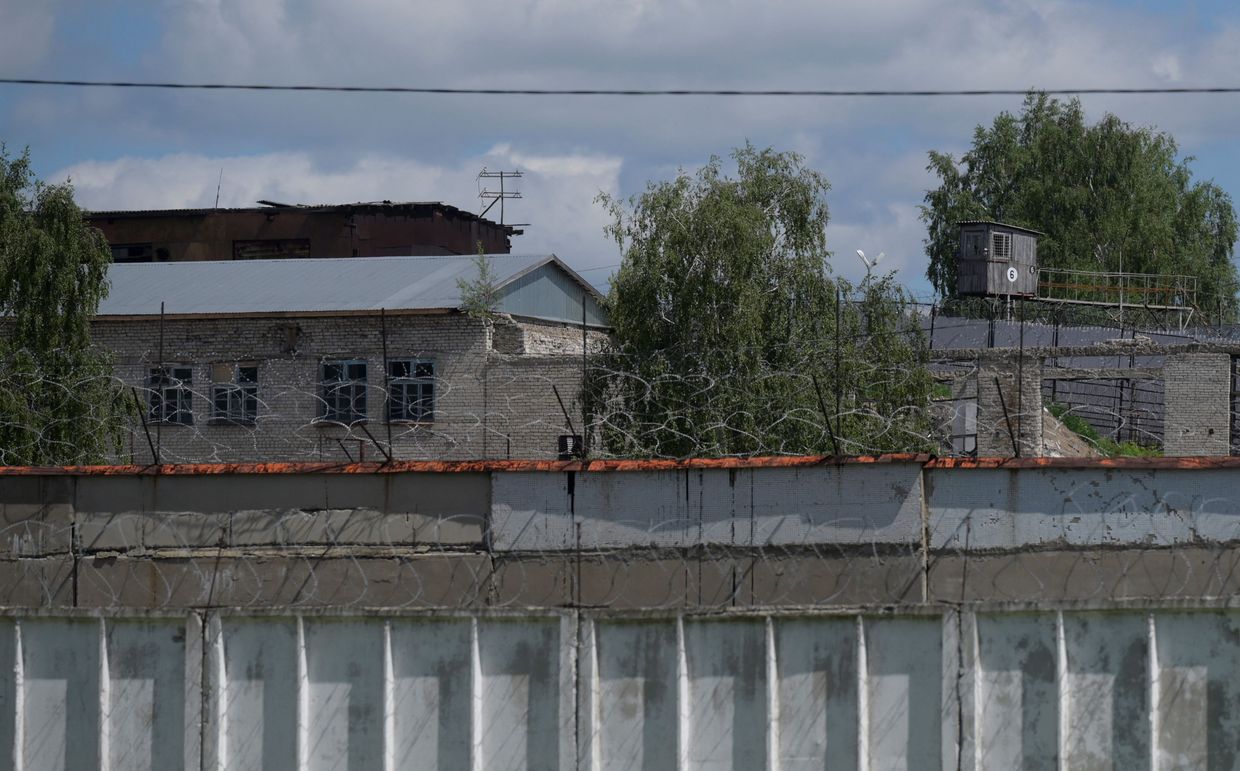
On top of being abducted on flimsy pretexts, captives go on to suffer abuse at the hands of the Russians: They are often placed in torture chambers in occupied territories, forced to aid Russian soldiers by digging trenches, demining fields, or cleaning military equipment, and then transferred to prisons across Russia and occupied Ukraine alongside prisoners of war.
Mikhail Savva, a legal expert from the Center for Civil Liberties, believes this is part of Russia’s strategy to intimidate residents of occupied territories and eliminate any potential resistance. He estimates that 91% of Ukrainians in Russian captivity endure torture.
One of them was Viktoriia Andrusha, a 27-year-old Ukrainian woman captured in the spring of 2022 in a then-occupied village in Chernihiv Oblast, who spent six months in a Russian prison. She said that she and two other women in her two-meter-wide cell were “lucky” to have been beaten only once, in contrast to the male Ukrainian prisoners who were beaten “almost every day.”
Russian security services threatened Andrusha, saying she “would never return home or have children,” that she had “already lived enough,” and even simulated burning her alive. Her day mostly consisted of being forced to sing Russian patriotic songs praising Russian President Vladimir Putin, and listen to Russian propaganda on the radio, Andrusha told the Kyiv Independent.
When Andrusha was allowed to send a letter to her family, the guards forced her to write that she was being treated well, fed three times a day, and provided with medical assistance – none of which was true. Many other civilian captives have not even been allowed to write a letter to their relatives, Yashchuk said.
According to Savva, most civilian captives are held in Russia without any official charges or court verdicts. Russian authorities often ignore families’ requests for information about their relatives or claim they are “verifying” the status of a detainee.
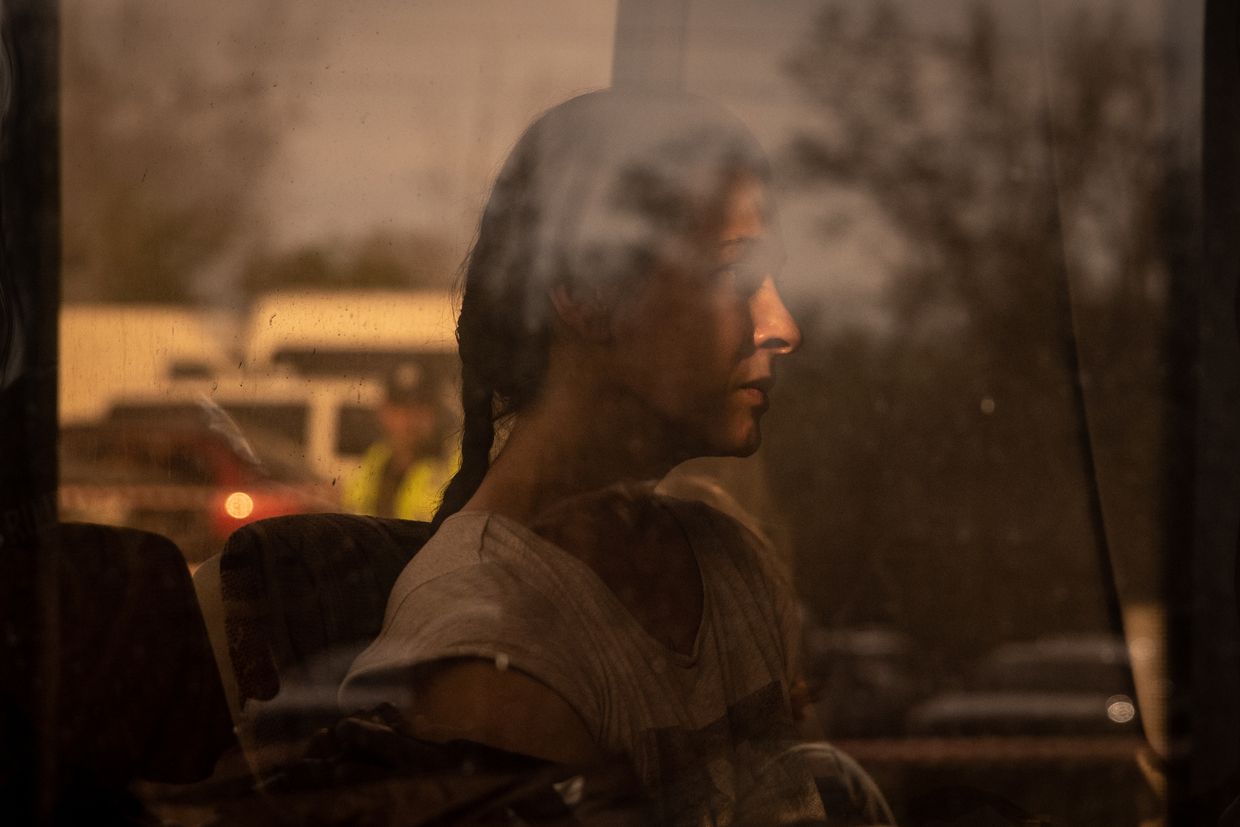
“International humanitarian law allows an occupying country to detain a citizen on suspicion of committing a crime. However, after the inspection, the person must either be charged or released,” Savva adds.
“In many cases, this ‘inspection’ has been ongoing for more than two years.”
Little progress
The exact number of Ukrainian civilians held in Russian captivity is unclear, as Moscow has not provided Kyiv with any official lists. The Center for Civil Liberties estimates there are over 7,000 captives, including around 200 individuals facing criminal charges. Ukraine cannot exchange civilians for Russian POWs without risking incentivizing more abductions.
Russia’s disregard for international law in the case of these prisoners is absolutely brazen, Yashchuk says:
“The Russian Federation sends a clear message: ‘Look, there is international humanitarian law, there are Geneva Conventions, there are rules of warfare. We absolutely, completely, and utterly do not care about them. See how we can violate them, and we won’t suffer any consequences for it.’”
No international organization has sufficient access to the over 100 penitentiary facilities in Russia and across Russian-occupied Ukrainian territory where Ukrainians are held.
Despite this, Ukraine has managed to achieve the release of nearly 160 civilian captives since the start of the full-scale invasion, says Petro Yatsenko, spokesperson for the Coordination Headquarters for Prisoners of War Treatment, a state agency. Most were transferred along with Ukrainian POWs. In exchange, Ukraine has sent Russia convicted collaborators – if they agreed to go and Moscow expressed a desire to have them, Yatsenko says.
Under international law, Russia should free illegally imprisoned Ukrainian civilians unconditionally. But according to Yatsenko, it has done so only a handful of times.
Another 300 or so civilian hostages have been released from prisons in Russian-occupied territories with the help of Russian lawyers, Savva says. However, after their release, they are not allowed to cross into Ukraine-controlled territory.
In recent months, it has become increasingly difficult for Ukraine to negotiate POW and civilian exchanges with Moscow, as it has been emboldened by a series of battlefield gains, according to Yatsenko. Therefore, he considers the latest return of civilians on June 28, with the assistance of the Vatican, “an important achievement.”
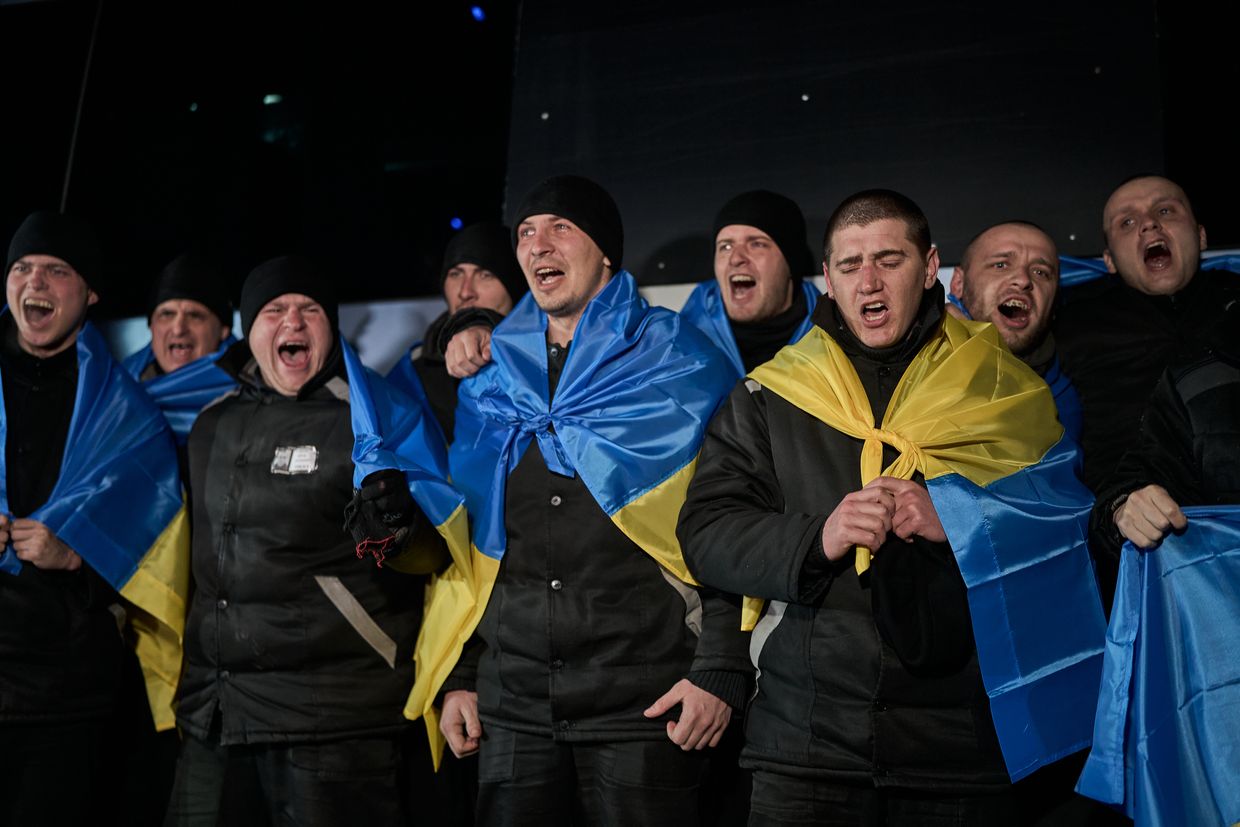
Mediation from third parties could help speed up the process. However, for it to be effective, the mediating country has to have “real influence on Russia” and good relations with both Kyiv and Moscow, Yatsenko says, adding that Kyiv is constantly searching for mediators such as the Vatican. Meanwhile, the situation “remains critical,” according to Yashchuk. If civilians continue to be returned at the current pace, in groups of 10 people at a time, it will take at least 86 years to bring everyone back, she says.
As days have stretched into months, and months into years, Valentyna Platonova has appealed to numerous international organizations and individuals, including the United Nations and the Pope, but none have been able to help bring back her son.
“I wait every day, I wait for every exchange, hoping my child is among them. At this point, I don't know who to rely on," she says.
“What can I do? If they would exchange me, I would go there (to Russia) and replace him in prison so that he could come home.”
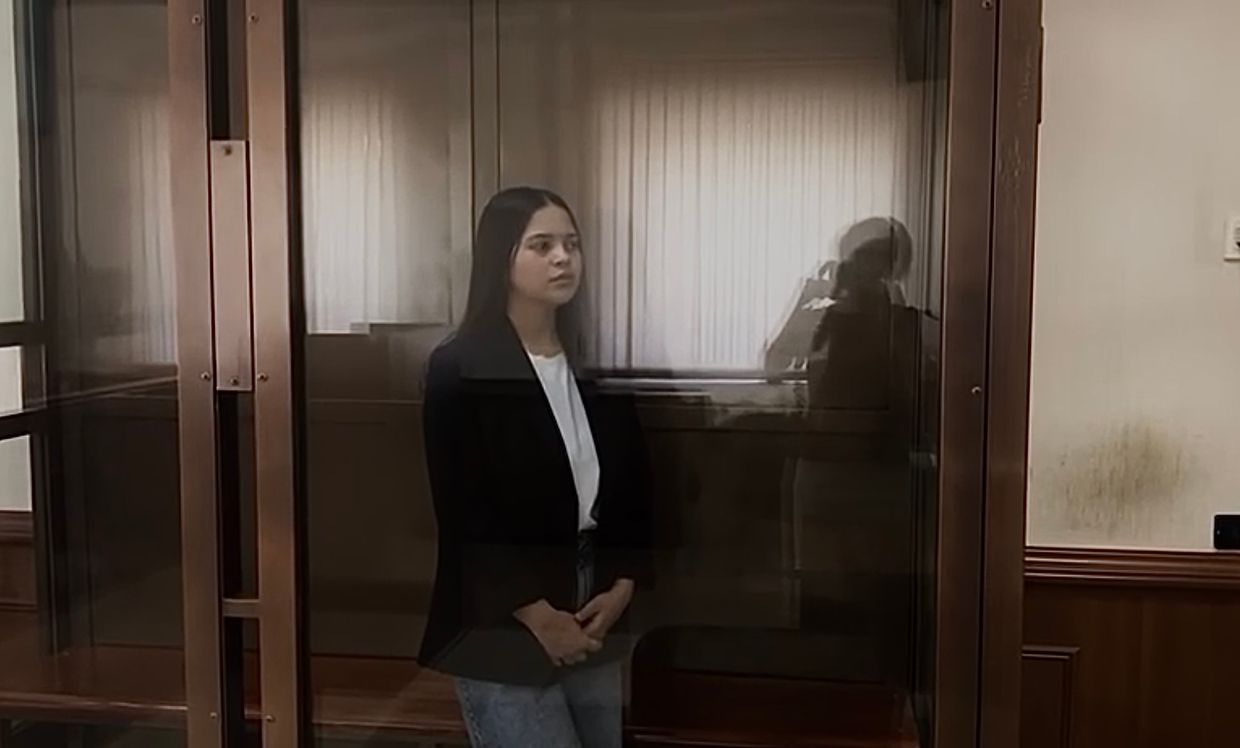
International pressure
Ukrainian human rights organizations are assisting the families of civilian hostages in locating them and confirming their relatives’ statuses, sometimes using contacts in Russia. They are also working with the Ukrainian authorities to develop a sustainable mechanism for returning all hostages.
In March, the Center for Civil Liberties and the Coordination Headquarters presented a strategy for the release of captured civilians “without exchanges or conditions.” The strategy urges the Ukrainian authorities to file an appeal against Russia for violating the International Convention against Torture and Cruel Treatment, namely the indefinite detention of civilians. Russia is a party to the convention.
Another key tool to facilitate the return of civilian hostages is to garner international support for these efforts, says Maryna Hovorukhina, an expert in strategic communications at the Common Sense Communications NGO. The organization works to involve change-makers and apply more pressure on Russia through communication campaigns abroad.

For one such campaign, the NGO encouraged Germans to send letters to the Russian Embassy inquiring about captured Ukrainian civilians or to share their stories on social media. The campaign received wide coverage from German media and involved politicians and international organizations, according to Hovorukhina.
“We will continue to work in this direction because civilian hostages have no voice, no tool for release, and are subjected to daily torture,” she says.
“We have to become their voice.”













